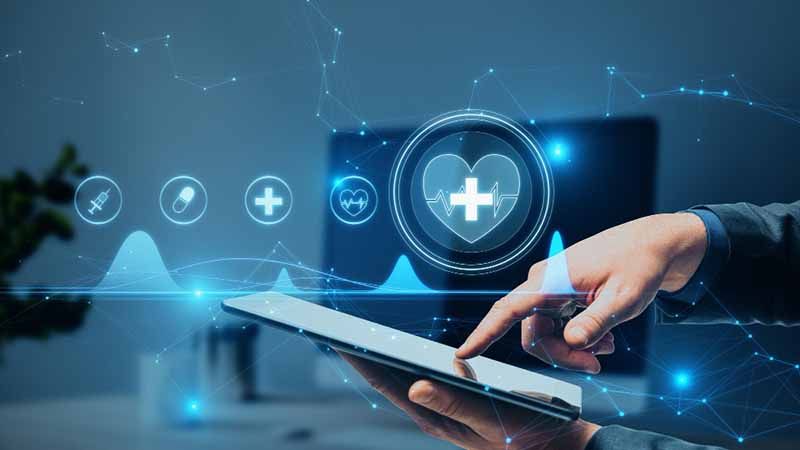AI-Driven Wellness in 2025: How Personalized Health Tech Is Changing Everything


In the fast-moving world of modern health, Artificial Intelligence (AI) is no longer a futuristic concept—it’s quietly becoming one of the most powerful tools for well-being and longevity. From personalized nutrition to mental-health monitoring, AI is transforming how people understand their bodies, prevent disease, and stay healthy longer.
The wellness revolution of 2025 is not about gadgets or hype—it’s about data-driven self-care that helps you live smarter, not harder.
The Rise of AI in Everyday Health
AI technology has already entered homes through smartwatches, fitness apps, and sleep trackers. But in 2025, things are going far beyond counting steps or tracking heart rates.
Companies like Fitbit, Oura, and WHOOP are now using machine learning to predict fatigue, detect early stress responses, and even anticipate potential illness before symptoms appear.
According to a 2025 report by the American Health Innovation Council, over 68% of U.S. adults use at least one AI-powered wellness app or wearable.
These tools analyze thousands of data points—sleep patterns, glucose levels, heart variability, oxygen saturation—to provide personalized insights that help users improve their daily habits.
“We’re entering an era where health is not reactive but predictive,” says Dr. Emily Sanders, a preventive medicine researcher at Johns Hopkins University.
Personalized Nutrition: Food Meets Algorithms
AI is revolutionizing how people eat. Nutrition used to be a one-size-fits-all approach, but not anymore.
Apps now combine DNA testing, gut microbiome data, and glucose monitoring to recommend personalized meal plans that actually match your body’s biology.
For example:
ZOE (popular in the U.S. and U.K.) uses microbiome analysis to recommend foods that balance blood sugar and support gut health.
Nutrisense connects glucose sensors with AI meal scoring, showing how different foods affect your metabolism in real time.
This approach is helping people manage weight, energy, and inflammation with remarkable precision.
And supplements are following the same trend—products like PrimeBiome and Mitolim use clinically tested ingredients to support microbiome and cellular energy, complementing AI-based diets.
AI-driven wellness in 2025 is transforming personalized health and preventive care.
Support Your Gut with PrimeBiome
Smart Sleep and Stress Monitoring
Sleep used to be one of the least understood aspects of health. Now, AI is unlocking its secrets.
Wearables like the Oura Ring and Apple Watch Series 9 analyze sleep stages, temperature, and breathing rate to give feedback on how lifestyle choices—like caffeine, alcohol, or exercise—affect rest quality.
AI-powered apps such as Calm, Headspace, and NerveCalm also use adaptive algorithms that detect when stress levels rise and suggest personalized breathing or meditation exercises.
Recent research from the Stanford Center for Sleep Sciences shows that people who use AI-driven relaxation apps experience 30% fewer sleep interruptions within four weeks.
These tools don’t just track—they teach users how to regulate stress, balance cortisol, and achieve restorative sleep naturally.
Try NerveCalm for Deeper, Calmer Sleep
Preventive Health and Early Detection
The biggest game-changer in 2025 wellness is prevention.
AI systems are helping detect chronic diseases before they develop symptoms—especially conditions like diabetes, hypertension, and hormonal imbalances.For instance:
AI algorithms can analyze continuous glucose data to spot prediabetic patterns months before blood tests show warning signs.
In women’s health, smart trackers now monitor hormonal shifts to identify early signs of menopause or thyroid dysfunction.
In men’s health, wearables connected to platforms like Alpha Surge or TitanFlow track energy levels and cardiovascular response, helping maintain vitality and testosterone naturally.
The key difference in 2025 is proactive health—AI gives people insights early enough to make real changes before illness sets in.
Emotional Well-Being: Mental Health Meets AI Compassion
While technology often gets blamed for anxiety, AI is now being used to reduce stress and emotional burnout.
Therapy bots like Wysa and Replika use natural-language processing to provide compassionate, real-time emotional support.
They’re not meant to replace human therapists, but studies show they help reduce feelings of loneliness and improve emotional regulation.A recent Yale University study found that daily check-ins with AI mood apps can lower perceived stress levels by up to 40%.
The next frontier?
AI that integrates heart-rate, tone of voice, and typing speed to detect when a person might be entering a burnout phase—then recommending rest, mindfulness, or supplements like NiteHush Pro for deeper recovery.The 360° Future of Wellness
The future of health is integration.
AI doesn’t replace human intuition—it enhances it.In 2025, the most successful wellness routines combine:
Smart data (AI apps and wearables)
Nutrient support (probiotics, adaptogens, nootropics)
Movement (daily exercise and mindful activity)
Restorative habits (deep sleep, stress control, and self-care)
The goal isn’t perfection—it’s personalized balance.
As Dr. Sanders notes, “AI gives us knowledge, but real health still comes from the choices we make every day.”
Frequently Asked Questions (FAQ)
Q1: Is AI reliable for managing health?
AI tools are based on large datasets and clinical research, but they’re not medical diagnoses. They’re best used for early insights and lifestyle optimization.Q2: Are AI wellness apps safe to use?
Yes, when they follow HIPAA or GDPR standards for data protection. Always use verified apps from trusted health tech companies.
Q3: How can I combine AI insights with natural supplements?
AI data helps identify deficiencies or imbalances. Pair that knowledge with science-backed supplements like PrimeBiome, NiteHush Pro, or Mitolim for better energy, gut health, and relaxation.
